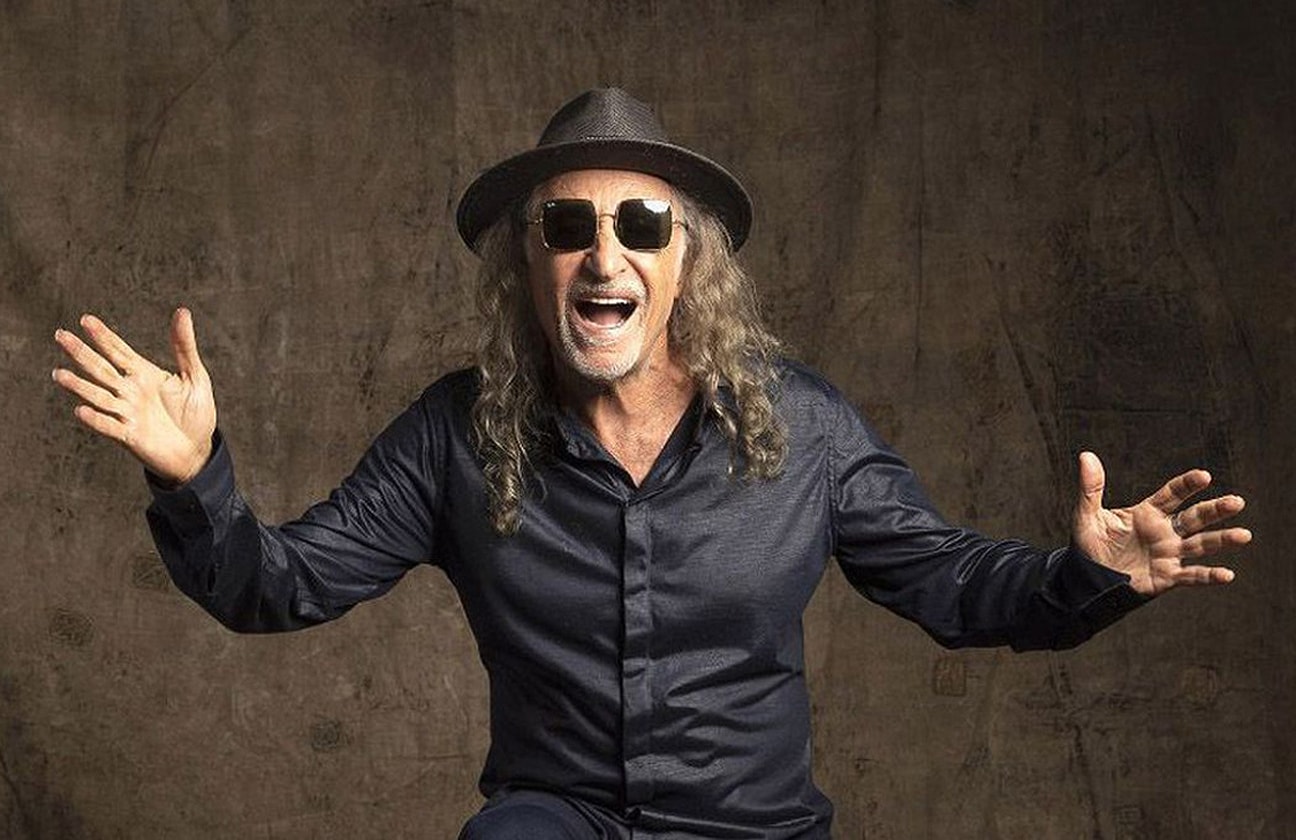“He never gave up his identity throughout his career”, emphasizes the journalist Julio Moura, author of the 562-page book “Pelas Ruas Que Andei” (Through the streets I walked) – A biography of Alceu Valença. The work on the multiple-influenced artist was launched in June, in Recife, Brazil.
Valença, who turned 77, has a career marked by resistance and maintenance of his northeastern roots. He is the creator of a distinctive musical style that mixes his northeastern roots and contemporary MPB grooves. He is also an energetic, even mesmerizing live performer. His songs have been recorded by several major artists, including Luiz Gonzaga (with whom he wrote “Plano Piloto”), Maria Bethânia, and Elba Ramalho.
The son of a locally renowned lawyer, Valença always worried his father with his rebellious character. At five he participated in a music contest, singing a song by Capiba. At 11, his mother took ill and his family moved to Recife. During this period, Valença became interested in the acoustic guitar and viola. However, he didn’t get one for a few years — he won an instrument during a song competition when he was 15. In 1965 he began a long period of attending law school in Recife with several interruptions. Three years later he began his musical career with the group Tamarineira Village. He also played with Zé Ramalho and Elba Ramalho during this period. While attending law school, he took part in an essay competition that offered a three-month course at Harvard University as its first prize. Without knowing a word of English, he drafted an essay comparing Marxism to the Catholic Church and pointed poetically at the contradictions of political ideologies in vogue. He won. During his Harvard period, he played his political songs in coffee houses when not studying. He was profiled by the student newspaper, which referred to him as the “Brazilian Bob Dylan.” After returning to Brazil, he graduated but never practiced law.
In 1972, he met Geraldo Azevedo. Together, they participated in many song festival competitions and recorded their first album, Quadrafônico, on Copacabana, produced by none other than Rogerio Duprat. He recruited musicians who were already established, including Zé Ramalho and Elba Ramalho. Valença placed numerous songs in festival competitions, but due to controversial lyric matter he was often disqualified — though these banned tunes won him a following among likeminded young people. Disappointed, he returned to Recife with the conviction of abandoning music. This decision proved short-lived.
 In 1974, he released the Eustaquio Sena-produced album Molhado De Suor. An avant-folk outing, it also featured the talents of Azevedo and Lula Cortes. He toured several Northeastern cities. In February 1975, he scored a big hit with “Vou Danado pra Catende,” at a festival; inspired by modernist Pernambucan poet Ascenso Ferreira, crowd support led the competition’s jury to create a special “Research” prize. In 1975, he recorded the now-classic rock album Vivo, a rock album recorded at the Teresa Raquel Theater in Rio de Janeiro. While touring and entering song competitions constantly, he didn’t record again for two years; the studio effort Espelho Cristalino was issued in 1977 and charted. These two recordings put him over the top as a unique stylist and songwriter in the MPB tradition, but he was also embraced by an entire generation of rockers.
In 1974, he released the Eustaquio Sena-produced album Molhado De Suor. An avant-folk outing, it also featured the talents of Azevedo and Lula Cortes. He toured several Northeastern cities. In February 1975, he scored a big hit with “Vou Danado pra Catende,” at a festival; inspired by modernist Pernambucan poet Ascenso Ferreira, crowd support led the competition’s jury to create a special “Research” prize. In 1975, he recorded the now-classic rock album Vivo, a rock album recorded at the Teresa Raquel Theater in Rio de Janeiro. While touring and entering song competitions constantly, he didn’t record again for two years; the studio effort Espelho Cristalino was issued in 1977 and charted. These two recordings put him over the top as a unique stylist and songwriter in the MPB tradition, but he was also embraced by an entire generation of rockers.
Valença was successful beyond anybody’s dreams but his own. Several of his songs became soap opera themes (the fastest way to reach a mass audience in Brazil) and grew his already large following. He earned a position as one of the most respected singers and songwriters in Brazilian popular music, and his albums and singles continued to chart.
Along his career, Valença recorded more than 20 albums and travelled around many countries, such as Portugal, France, Netherlands and United States. Actually, he is considered one of the greatest exponents of the music of Pernambuco.
Finally, with the 2013 release of Três Tons de Alceu Valença, a box with the oldies Cinco Sentidos (1981), Anjo Avesso (1983) and Mágico (1984) all of Alceu Valença’s solo work is available on CD. In 2014, his album Amigo da Arte was nominated for the Latin Grammy Award for Best Brazilian Roots Album.



